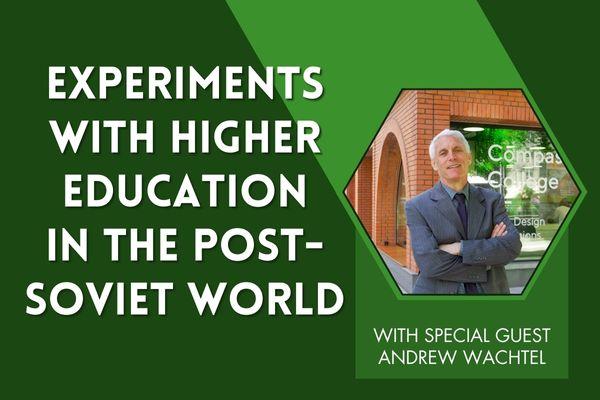
After the collapse of the USSR, institutions of higher education in Russia and Central Asia suffered badly. The best faculty left for the West, those who could not leave but who had initiative looked for opportunities in other sectors, and those who remained were massively underpaid and overworked. Thirty years on, educational systems in these countries have evolved but still have strong connections with the Soviet tradition, for better or worse (usually the latter). Since 2010 Andrew Wachtel has worked in Central Asia and Russia as an institution builder, a consultant, and a startup educational entrepreneur. In his talk he will describe the similarities and differences between the situation of higher education in Kazakhstan, Kyrgyzstan, Russia, and Uzbekistan and discuss how trends emerging there may be harbingers of change for educational systems in other parts of the world.
About Andrew Wachtel:
Andrew Wachtel is a co-founder and the Director of Compass College of Art and Design in Bishkek, Kyrgyzstan. He is also Rector of TEAM University in Tashkent, Uzbekistan, and the Director of Educational Programs for inDrive, in which capacity he is creating an innovative university in Almaty, Kazakhstan. Previously, he served as Rector of Narxoz University in Almaty, and President of the American University of Central Asia in Bishkek, Kyrgyzstan. Before coming to Central Asia, he was dean of The Graduate School and director of the Roberta Buffett Center for International and Comparative Studies at Northwestern University. A fellow of the American Academy of Arts and Sciences and a member of the Council on Foreign Relations, his interests range from Russian literature and culture to East European and Balkan culture, history, and politics to contemporary Central Asia. He also works as a translator from multiple Slavic languages and consults on educational projects throughout Eurasia.
Co-sponsors:
Office of International Affairs, Department of Slavic and East European Languages and Cultures the Slavic Studies Department, and the Center for Slavic, East European and Eurasian Studies, Department of History
